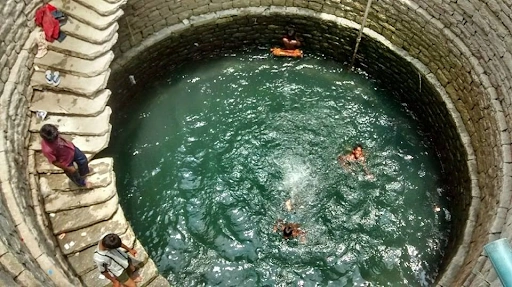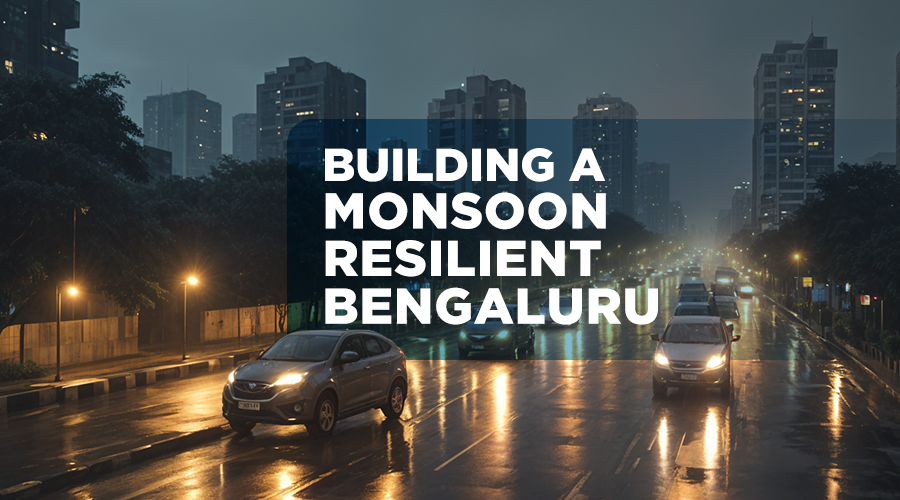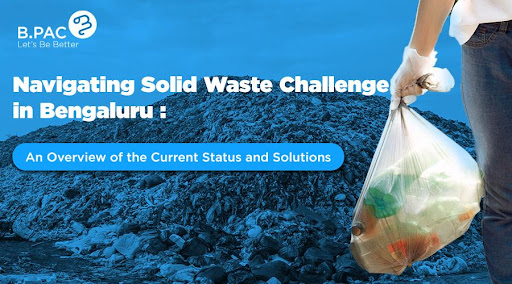Once known as ‘City of Lakes‘, boasting a network of over 1000 lakes, Bengaluru now faces the stark reality of water scarcity, a shift from its abundant past.
For centuries the city was blessed with a rich network of rivers and these plentiful lakes. However, a harsh reality confronts modern-day Bengaluru – a severe water shortage.
This dramatic shift begs the question: how did a city once brimming with water resources find itself facing such a critical situation?
Let’s delve into the factors that led to this crisis and explore potential solutions to secure Bengaluru’s water future.
Navigating Bengaluru’s Thirst: Insights into the Water Crisis
Bengaluru’s water crisis stems from a combination of factors, including over-extraction of groundwater, limited recharge rates, and dependence on distant water sources like the Cauvery River. Even though Bengaluru is situated on a fractured hard rock aquifer, over-extraction of groundwater coupled with limited natural recharge has severely depleted these reserves. Recent statistics from the Central Water Commission reveal a concerning trend in Karnataka’s reservoirs, with water levels plummeting to a mere 26% of their total capacity. This figure falls significantly below the anticipated level for this time of the year, lagging behind by at least 10% points. Instead of the expected 8.8 billion cubic metres of water typically present in Karnataka’s reservoirs during this period, a stark deficit is evident, with only 6.5 billion cubic metres currently available. Further compounding the issue, Bengaluru relies heavily on distant water sources like the Cauvery River, straining infrastructure and adding pumping costs. The city’s explosive population growth since 1990 has fueled rampant urbanisation, leading to encroachment on vital water bodies and further hindering natural recharge. This confluence of factors has created a water crisis that demands immediate and innovative solutions.
The consequences of Bengaluru’s water crisis are far-reaching, affecting both residents and industries. Water scarcity disrupts daily life, leading to reduced access to clean drinking water and sanitation facilities. Industries face operational challenges, impacting productivity and economic growth. As per latest news sources, currently, Bengaluru relies heavily on groundwater, with over 6,000 out of 14,000 borewells drying up due to plummeting groundwater levels. The city needs 2,600 MLD (million litres per day) of water for both drinking and industrial purposes. Of this, 1,450 MLD is being pumped from the Cauvery river incurring additional costs and 650 MLD is being provided by borewells in the city. There is a shortage of 500 MLD of water this year.
Amidst the escalating water crisis in Bengaluru, there’s a ray of hope that emerges in the form of the Cauvery Phase V project, slated to commence in June 2024. This ambitious undertaking is geared towards helping 110 villages with water that were integrated into the Metropolitan Bengaluru Municipal Corporation back in 2006-07. The project also involves building a Water Treatment Plant (WTP) that can clean up to 775 million litres of water every day. Expected to finish by 2024’s end, this project costs about Rs 5,500 crore. Its goal? Providing 12 lakh people with 110 litres of water daily, which could make a big difference in solving Bengaluru’s water crisis.
Flowing Towards a Sustainable Future: Innovative Solutions for Water Management
Addressing Bengaluru’s water crisis requires a multi-pronged approach that combines conservation, augmentation, and innovative water management practices. Initiatives such as rainwater harvesting and improved lake management are fundamental components, aimed at replenishing dwindling water reserves and preserving natural water bodies. Simultaneously, stringent enforcement measures against water misuse are essential to ensure responsible usage and conservation. Raising awareness among citizens about the importance of water conservation is crucial. Promoting water-saving practices in households and industries, coupled with holding authorities accountable for sustainable water management practices, can foster a collective endeavour towards addressing the crisis.
Here are some sustainable solutions to consider:
Reducing Demand:
Promoting Rainwater Harvesting: Rainwater harvesting systems in residential, commercial, and industrial buildings can help recharge groundwater and reduce reliance on external water sources. Incentivizing rainwater harvesting through subsidies and awareness campaigns can encourage widespread adoption.
Promoting Greywater Reuse: Greywater is wastewater from sources other than toilets that can be treated and reused for non-potable purposes such as irrigation, flushing toilets, and industrial processes. Implementing greywater recycling systems at the household and community levels can alleviate pressure on freshwater sources and reduce wastewater discharge.
Water Conservation Measures: Implementing water conservation measures such as fixing leaky pipes, promoting water-efficient appliances, and adopting water-saving practices in households and industries can significantly reduce water demand. Public awareness programs and water-saving initiatives in schools and communities can foster a culture of conservation.
Improving Supply:
Wastewater Treatment: Investing in wastewater treatment infrastructure to treat sewage and industrial effluents can help reclaim water for reuse and prevent pollution of water bodies. Adopting advanced treatment technologies and decentralised wastewater treatment plants can improve water quality and promote environmental sustainability.
Integrated Water Management: Adopting an integrated approach for cauvery water management that considers the entire water cycle, from source to consumption to disposal, can optimise water use efficiency and resilience. This includes watershed management, aquifer recharge, and holistic urban planning to protect water resources and enhance ecosystem services.
Revitalising Lakes & Tanks: Revitalising lakes and tanks for water storage presents a promising solution to Bengaluru’s water crisis. The city’s historic lakes and tanks hold immense potential as natural reservoirs that can be rehabilitated to augment water storage capacity. Through desilting, restoration, and conservation efforts, these water bodies can be rejuvenated to their former glory. By safeguarding and preserving these vital resources, Bengaluru can enhance its resilience to water scarcity while simultaneously revitalising ecosystems and promoting biodiversity.
‘Million Wells for Bengaluru’ campaign: The Million Wells for Bengaluru campaign stands as a pivotal initiative aimed at addressing the water crisis in Bengaluru, India. This ongoing project, supported by the Bangalore Water Supply and Sewerage Board, endeavours to construct one million shallow wells across the city, employing traditional well-digging techniques. Central to this endeavour is the recognition of rainwater harvesting as an indispensable practice for urban Bengaluru’s sustainable water management. By harnessing ancient methods of well construction, the campaign seeks to tap into groundwater resources effectively, thereby alleviating pressure on existing water sources. Scheduled for completion by 2025, the Million Wells for Bengaluru project signifies a proactive step towards ensuring water security for Bengaluru.
Enhancing Governance:
Implement rigorous regulations on water usage: Enforcing stringent regulations governing water consumption by industries and imposing substantial fines for wastage can provide a strong incentive for conservation efforts.
Allocate resources for water infrastructure enhancement: Prioritising investments in the enhancement of water treatment plants, pipelines, and distribution systems is essential for reducing water loss and enhancing operational efficiency across the city.
Promote public awareness regarding water conservation: Launching comprehensive public awareness campaigns plays a pivotal role in educating citizens about the critical significance of water conservation. Empowering individuals with knowledge and encouraging the adoption of sustainable practices are key steps towards fostering a culture of responsible water usage in the community.
Key Takeaway:
As we commemorate World Water Day, it serves as a poignant reminder of the urgent need for collective action to address the global water crisis. Bengaluru’s water scarcity not only highlights the pressing challenges faced by rapidly urbanising cities, but it also underscores the potential for innovation and sustainable solutions. By embracing initiatives such as rainwater harvesting, greywater reuse, and the Million Wells for Bengaluru campaign, the city can chart a course towards water security and resilience. However, the journey towards sustainable water management can’t be achieved without proactive governance, public engagement, and continuous investment in infrastructure and conservation efforts. Let us reaffirm our commitment to building a Bengaluru where clean water flows freely, nourishing communities, ecosystems, and prosperity alike!
Sources:
- https://whc.unesco.org/en/canopy/bengaluru/
- https://www.indiatoday.in/diu/story/bengaluru-water-crisis-karnataka-government-water-scarcity-rapid-urbanisation-climate-change-2514793-2024-03-14
- https://www.deccanherald.com/india/karnataka/bengaluru/bengaluru-falling-short-by-500-mld-water-cm-2942294
- https://www.livemint.com/news/india/bengaluru-water-crisis-siddaramaiah-says-his-govt-will-provide-water-to-110-villages-around-bengaluru-in-june-11710763167413.html
- https://economictimes.indiatimes.com/india-news/a-hope-for-bengalurus-water-crisis-all-about-cauvery-phase-5-project-and-expected-supply-date/articleshow/108607895.cms?from=mdr
- https://indianexpress.com/article/explained/explained-climate/what-caused-the-water-crisis-in-bengaluru-9223131/






